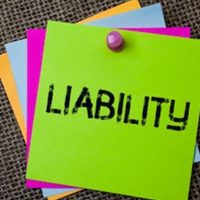Are Waivers of Liability Valid in Florida?

If you participate in rock climbing or skydiving, you might even be asked to sign a separate document with the title “Waiver of Liability” in big, bold letters. This document states that the participants waive any right to sue if they are injured due to the operator’s negligence. These types of waivers are used in all sorts of commercial activities, including purchasing tickets to sporting events or music concerts.
But are these waivers of liability valid? Can a person really sign away their right to sue for compensation when someone else’s carelessness injures them? The answer under Florida law is complicated. Generally, a court will enforce a waiver if certain requirements are met. However, waivers cannot eliminate a company’s liability for personal injuries in all cases.
The Waiver Language Must Be Clear and Unambiguous
Before a court will enforce a waiver, they must take a close look at it. Waivers are a type of exculpatory contract, and Florida law requires that they be clear and unequivocal, so that people understand that they are signing away their right to sue for injuries caused by negligence.
Because the company drafted the waiver, it has the burden of making sure that it meets the above criteria. Any ambiguity or vagueness will render the waiver void, and an injured victim can sue. Show the waiver to an attorney to review whether it is likely valid.
Not all Legal Claims Can Be Waived
Waivers usually only apply to negligence claims. Negligence is the failure to use due care. So if you are injured because a ride operator in a theme park was careless, then your waiver will probably prevent you from going into court and filing a lawsuit.
However, waivers cannot defeat a claim based on reckless or intentional conduct. So if a theme park ride operator showed up to work drunk or high, then they have likely been reckless. And if they intentionally operated a ride to injure people, then the waiver will not prevent a suit, either.
Waivers & Minor Children
Any contract with a child is voidable, which means that their parents must sign any waiver. But this creates a legal problem, since a child shouldn’t lose his or her legal rights to compensation because the parents decide to give them away.
As a result, Florida law will look closely at the context in which the waiver was signed. Generally, waivers signed for a non-commercial activity, like going to a school, could be enforceable. However, a court might strike down a waiver related to commercial activities.
Let Us Help
No accident victim should assume that they cannot bring a lawsuit because of the existence of a waiver. In some cases, these agreements are invalid, or the facts of the case show that a victim was injured by reckless or intentional conduct.
Speak with Earnhart Law today. One of our Delray Beach personal injury attorneys can review the circumstances and decide whether you have a right to sue. Call us today to schedule a free consultation.
Resource:
floridabar.org/the-florida-bar-journal/the-great-escape-how-to-draft-exculpatory-clauses-that-limit-or-extinguish-liability/
https://www.delrayinjuryattorneys.com/what-are-complications-related-to-amputations/
